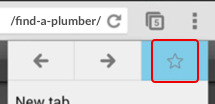The cost, adequacy and availability of insurance in the plumbing industry have been highlighted as three major issues that require addressing – and Master Plumbers is seeking the views of its members to help it advocate for change.
A new discussion paper explores issues and opportunities facing plumbing industry insurance, concluding that the insurance mix must be industry-relevant and fit for purpose particularly given the key role the plumbing industry will play over the next decade in the shift towards clean energy.

“We know the critical role that insurance plays in our industry - it allows us to work safely, effectively and in a viable way. Insurance provides protection and assurance for our practitioners, customers and third parties alike,” says Daniel Smolenaars, Chair of the Master Plumbers National Council Insurance Committee.
“By nature, plumbing work has inherent risks and hazards, which mean insurance is necessary and important for times when failures or accidents occur. Master Plumbers is committed to advocate on behalf of our members, and the wider sector, to ensure that insurance is readily accessible, cost effective and provides the cover our practitioners need, when they need it.”
The discussion paper focuses on Victoria, which is the only Australian state or territory operating under a self-certification regime where practitioners must hold mandatory insurance with comprehensive cover for themselves and clients as a condition of their license.
Under what is known as the “Ministerial Order”, this insurance must provide cover for public liability, defective plumbing work, trades practices liability, non-completion of works and completed works. The VBA requires evidence that a practitioner is covered for at least $5m public liability insurance and $50,000 consumer protection insurance before the license can be issued.
As the discussion paper highlights, the cheapest insurance policies available to Victorian practitioners costs around $1,600 a year, which is about twice the cost of the cheapest available cover in other states.
“Our members anecdotally tell us that the cost of their insurance premiums continues to increase, on average around five to 10 per cent a year,” says Daniel Smolenaars.
“There are external factors to explain this in part, such as extreme weather events and increasing global costs around third-party liability. However, there is also a perception that the Victorian Building Authority (VBA) will sometimes provide a practitioner’s insurance details to a customer which opens the door for the consumer to lodge a claim with the insurer instead of seeking to resolve the issue directly with the practitioner in the first instance.
“The Victorian regulatory approach stipulates that the practitioner should have the first opportunity to rectify any defects that may arise during a job. If these practices are occurring, Master Plumbers and the broader industry would push for policy or procedural change.”
Another key issue identified in the discussion paper is that cheaper insurance, which comes with exclusions, provides significantly less protection for practitioners and consumers and would invalidate a license renewal if it doesn’t meet the requisites of the Ministerial Order. One example of this is policies that exclude coverage of any work undertaken above the second level of a building.
This can clearly lead to scenarios where practitioners take a gamble on a cheaper insurance policy, hoping there will not be a claim relating to excluded work, which can have serious ramifications for them and their customers.
“Another concern is that insurance may not be accessible or understandable for practitioners. This lack of literacy around insurance, not to mention the administrative burden it can provide, can present serious barriers to practitioners who need to devote the bulk of their time to their day to day work and business operations,” says Daniel.
“Anecdotal evidence gathered for this discussion paper suggests that some practitioners in Victoria have ceased their work in the plumbing industry because of an inability to gain insurance, because they found the costs prohibitive or because of the associated administrative costs.
“We do not want any more scenarios where skilled and qualified practitioners feel forced out of the industry because of challenges and barriers posed by insurance. Ultimately this is a poor reflection on the efficiency of the regulatory framework around insurance.
“At the end of the day though the most significant risks posed to all parties - including practitioners, consumers, third parties and the broader environment - occur due to under insurance or, in other jurisdictions, practitioners being uninsured.
Master Plumbers is undertaking a comprehensive survey of members and licensed plumbers in Victoria to better understand and quantify these critical issues.
The discussion paper and industry survey further inform the strategies and direction we advocate on behalf of our members for necessary reform.
If you would like to provide any further feedback to Master Plumbers on this issue, please email [email protected].
Share this Article






